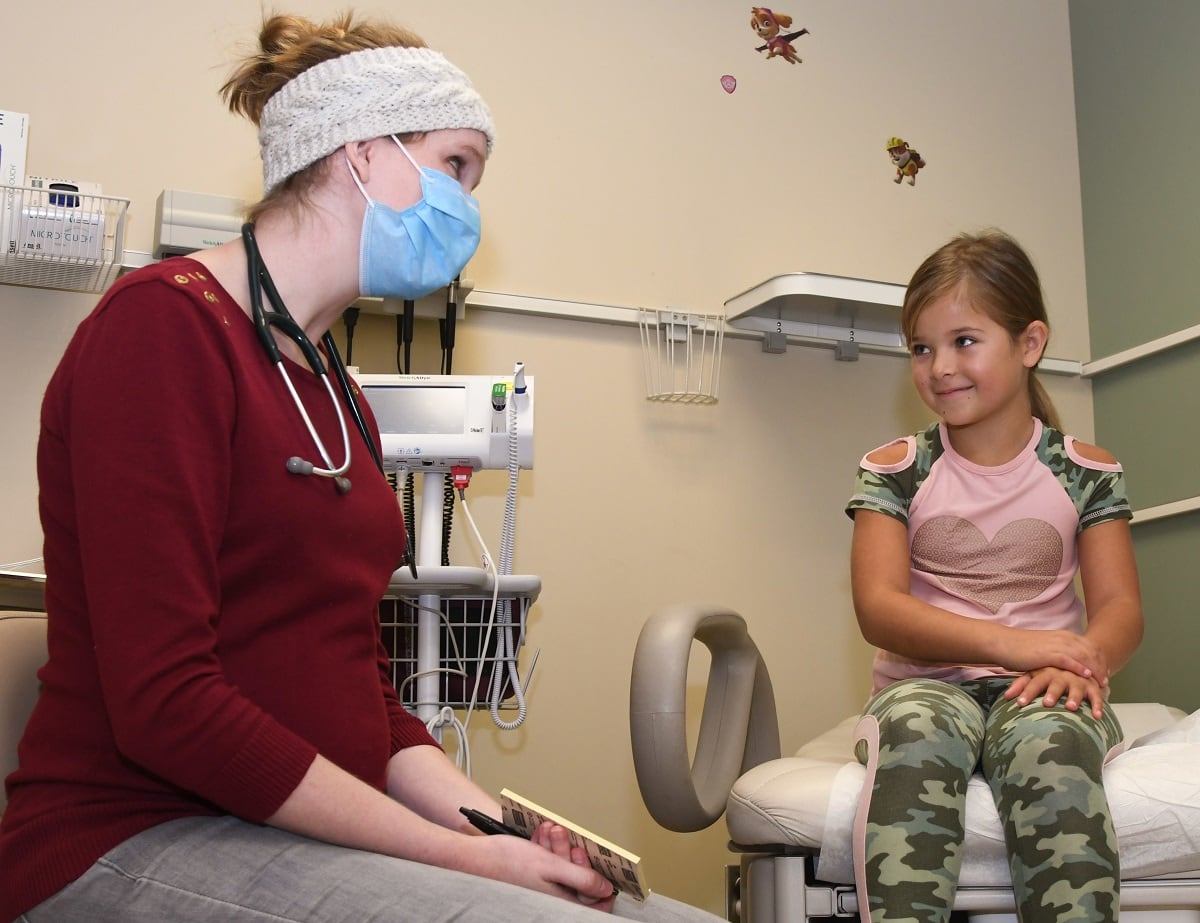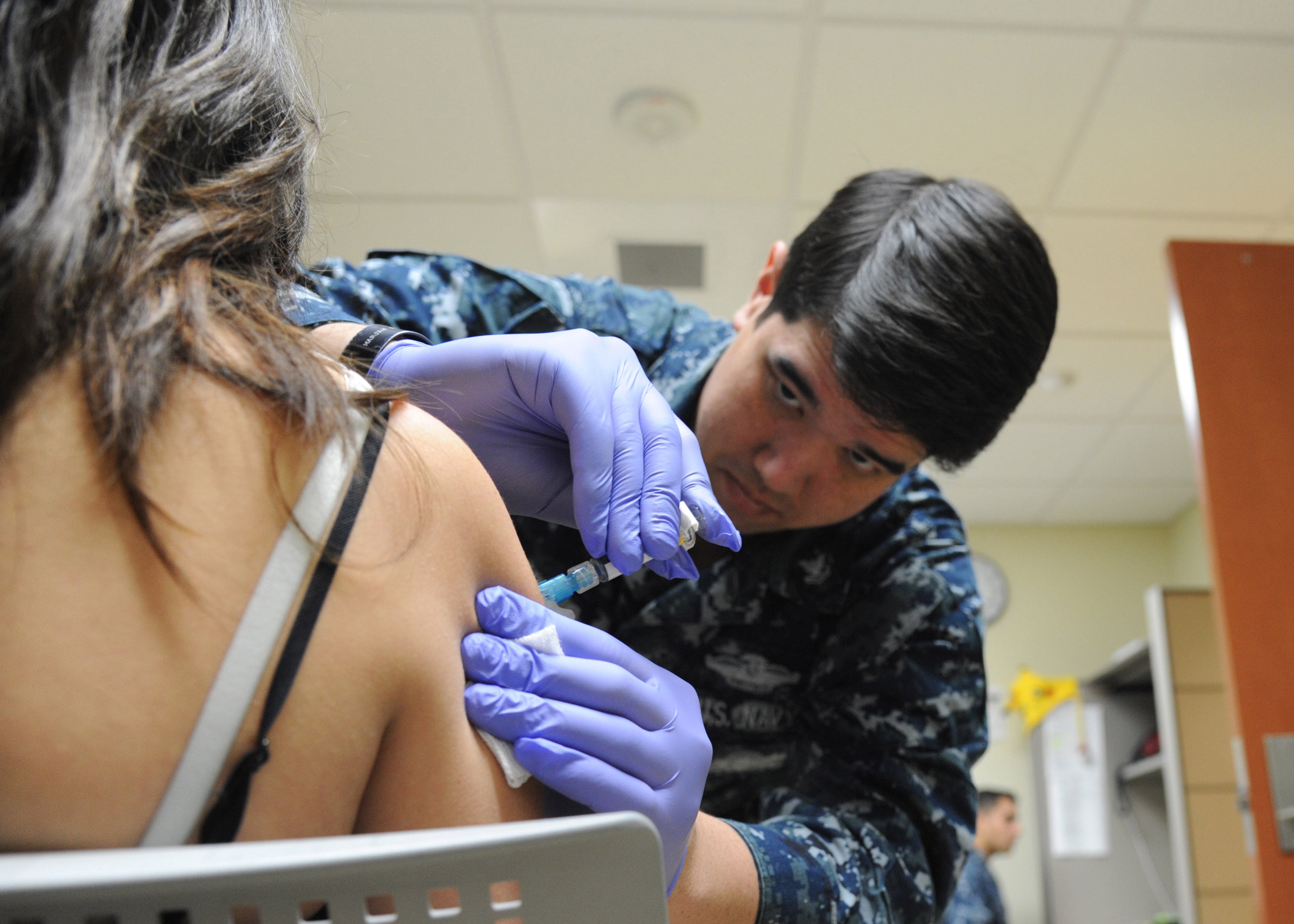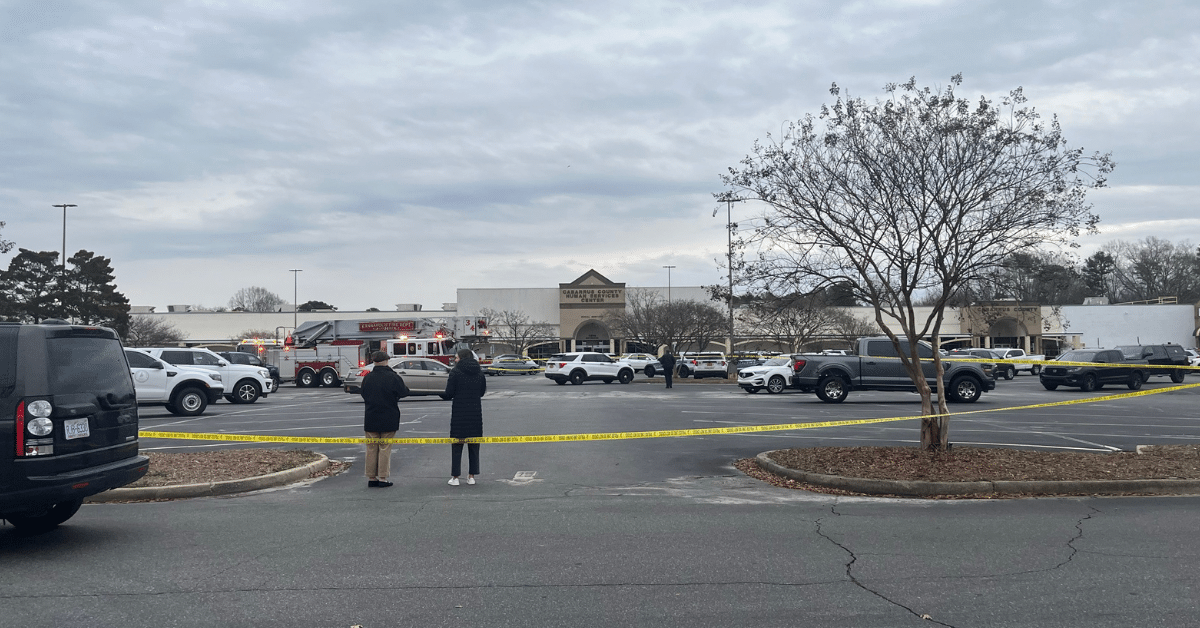An Army wife was notified last week that her son wouldn’t be able to go to his appointment with the pediatric pulmonologist he’d been seeing for the last two years. The medical practice could no longer accept his Tricare insurance under the Defense Department’s new Tricare contract with TriWest Healthcare Alliance.
Her elementary-age son has a heart condition, and asthma, and is prone to pneumonia. He is required to see the pulmonologist every six months and can’t get a refill for his critical medication until he sees that doctor.
“This is one of the extremely important doctors he needs,” she said, crying during a telephone interview Feb. 13, the day she learned her son wouldn’t be able to see the provider. “He can’t go without this medicine.”
The wife, who asked to remain anonymous out of fear of retaliation against her active-duty husband, thought Defense Health Agency officials had provided a solution when they announced beneficiaries in Tricare West would be able to see the specialists if they obtained referrals from their primary care doctors and a waiver letter provided by Tricare officials. The temporary policy change, made in late January, said beneficiaries would not have to wait for TriWest to approve the referral.
But the medical group contacted her on Feb. 13 to say they couldn’t see her son for his Feb. 21 appointment without an authorization number from Tricare. They refused the waiver.
She called TriWest again Feb. 18, and after being on the phone from 8:00 a.m. until about 1:30 p.m. – including being on hold for several hours – she was able to get a referral authorized for her son because of his critical need. The Army wife said the representative took extraordinary measures to get the referral through. It would take at least four months to get another appointment, she said.
Her family has endured a series of problems since the new contract started with TriWest in January, and they are among an untold number of military families and health care providers who have experienced issues.
TriWest HealthCare Alliance took over the Tricare West Region contract on Jan. 1. In December 2022, defense officials announced the awarding of the two new Tricare contracts worth a potential combined $136 billion over eight one-year option periods. Humana Military’s contract is worth a potential $70.8 billion, while TriWest’s is worth a potential $65.1 billion.
After protest hurdles were cleared, the work on transitioning to the new contracts started in January 2024.
Last year, Defense Health Agency officials assured military families there would be no interruptions to their health care with the new contracts, and they promised the contracts would bring some improvements in their care.
“We are committed to keeping all of our military families informed about your health plan, your choices, and ensuring a seamless transition to new contractors,” DHA Director Army Lt. Gen. Telita Crosland said in a May 2024 press release.
But the transition to TriWest from Health Net Federal Services has been anything but seamless, according to multiple military families and health care providers who have contacted Military Times. Those problems have affected patients’ ability to get needed care — including a terminal cancer patient whose referrals were lost somewhere in the system.
Since Jan.1, beneficiaries and providers alike have had problems with TriWest’s online portal, and many have waited hours on hold with the TriWest call center for multiple days.
Families dropped from coverage
On Jan. 24, when the Army wife took her children to their appointment at their military clinic near Fort Cavazos, Texas, she found out they’d been kicked out of Tricare Prime as of Jan. 1. While she is happy with the care they’ve continued to receive at the military clinic, she and her sons need to see a variety of specialists.
“They advised us at the appointment that we are no longer Tricare Prime, and we were on direct care, which is almost like not having insurance at all,” she said.
Direct care is run on a space-available basis at military clinics. So far, the family has been able to get their primary care at the clinic. Prior to the doctor’s visit on Jan. 24, they hadn’t been notified of the loss of coverage.
“In November, we were told everyone would be automatically ported over from Tricare East to Tricare West,” she said. “For us, and many others, that wasn’t the case.”
RELATED
Texas is one of six states that were transferred from coverage under the Tricare East Region to the Tricare West Region under the new contracts. It took three days and multiple phones with TriWest and Tricare for the family to get back into Tricare Prime, the Army wife said.
Getting kicked out of Tricare was only the beginning of the Army family’s problems, which have reached a crisis level. Though she received authorization for her son to see his specialist, she also needs surgery for a new condition but is unable to find a doctor who will accept her insurance because of the TriWest problems, the wife said.
The Defense Health Agency announced several steps to help military families deal with the problems, including the waiver that is intended to allow families to see specialists without waiting for TriWest to approve a referral. But as the Army wife and others have found, an unknown number of specialists won’t accept the waiver – even for existing patients – because of the difficulties the providers are having with TriWest.
In addition to widespread problems with TriWest’s web portal and call-center wait times, other problems reported to Military Times include: receiving incorrect information from TriWest; TriWest taking months to approve contracts for Tricare providers; and providers not being reimbursed for the care they’ve provided to Tricare beneficiaries.
Because the providers are having these difficulties, some of them are not taking new Tricare patients – and dropping the ones they did have.
“We’ve been really concerned about all the issues that both providers and beneficiaries are encountering in the East and West regions,” said Eileen Huck, acting director of government relations for the National Military Family Association. “We’re concerned about the the impact the issues are having on families’ access to care, and we’re concerned about the impact on the network if providers are not receiving timely reimbursement.”
Many providers in the network are small businesses, Huck noted, including some run by veterans and military spouses.
“It’s not realistic to expect they can go weeks without receiving reimbursement,” Huck said. “We’ve heard from multiple providers who are either contemplating leaving the Tricare network or having to close their doors.”
Problems in the East and West
In statements provided to Military Times, Defense Health Agency officials and TriWest officials said they are aware of the issues. DHA “is very concerned about the issues that have been reported in both the East and West regions regarding provider reimbursements, patient wait times with the call centers and web portal challenges, among others … We understand these challenges and are working hand in hand with both TriWest in the West and Humana in the East to resolve these issues,” officials stated.
In the East region, the problems appear to center around providers’ lack of payment since Jan. 1. Some providers have told Military Times they are in danger of having to stop seeing Tricare patients, or even shutter their businesses. Humana Military remains the Tricare East contractor, but the company has a new claims processor.
DHA is “aware of the issues Humana has had with their claims processor. They have assured us this is being fixed and we are holding them to the terms of their contract with us,” officials said in their statement to Military Times.
Humana officials told Military Times a “small percentage” of providers’ records in the claims administration system contained outdated or incorrect data, despite loading all providers’ current data into the system in preparation for the new contract.
RELATED

Claims have started flowing through the processing systems, and payments have begun, officials said. Humana also made the decision to send advance payments “to the most vulnerable providers who have submitted claims,” they added.
“Humana Military has identified the root cause of this issue and is working to resolve it and prevent it from recurring,” they said Feb. 7. “At this time, we anticipate those remaining issues will be fixed in the next couple of weeks.”
Humana officials said providers can submit claims through a clearinghouse, mail, email or fax – if they can’t submit them through the provider portal at Humana.Military.com.
As for the plethora of problems in the West region, DHA officials told Military Times they are monitoring TriWest’s performance daily, and are “taking appropriate steps and contract actions to facilitate resolution of all performance issues in the West Region.”
In a Feb. 5 response to concerns and questions raised by Rep. Marilyn Strickland, D-Wash., DHA officials said they have have issued a Corrective Action Request for the West region’s referral and authorization issues and are considering additional requests.
“We will continue to leverage all available avenues of redress, including negative incentives, under the contract to bring TriWest into compliance with its contractual obligations,” officials wrote in their response to Strickland.
TriWest acknowledged the problems in a statement to Military Times.
The company “recognizes there have been a number of challenges associated with this transition, and our sole focus is solving these issues expeditiously and achieving the excellent service our nation’s heroes deserve,” TriWest officials said. “While some issues will take time to resolve, we are confident in our ability to deliver a successful outcome for America’s service members, and we deeply appreciate the Tricare beneficiaries and providers who are working through these issues with us.”
For the patient with terminal cancer whose referrals were lost, her referral waiver came in time for her to get the test she needed. But by that time, the patient – a military retiree’s wife – had spent 28 hours on the phone with TriWest, much of it spent on hold or in a loop that resulted in no answers, she told Military Times. On Jan. 23 alone, she was on the phone from 9 a.m. to 4:30 p.m.
Medical providers left in limbo
Many medical providers are struggling to get their contracts approved by TriWest to participate in Tricare, despite having completed the necessary paperwork months ago, said Kristi Cabiao, CEO of Mission Alpha Advocacy, an organization that works to improve the quality of life for families in the Exceptional Family Member Program.
And difficulties with getting paid have taken a toll on health care providers in the East region since Jan. 1, Cabiao said. Some providers have had to take out loans to continue operating, while others have been forced to close their doors.
Gabrielle Griffith said her clinic is hanging on by a thread. She owns 850Therapy clinic in Crestview, Florida, which serves the special needs children of service members stationed at Eglin Air Force Base, Hurlburt Field, Camp Bull Simons and other installations in the area.
Unless the payments start coming in on a regular basis, Griffith will be forced to close, she said. Previously, she accepted only Tricare patients, prioritizing serving military families. But recently, she’s applied to join the networks of other insurance companies.
“I’m not prioritizing Tricare any more … We’re going to have to prioritize the insurance companies that pay consistently and take care of the providers as well,” Griffith said.
RELATED

She fought all through January to get paid for claims, but “when we submit claims they’re sitting there in the queue forever,” Griffith said.
Under the previous contract, reimbursements for claims typically were deposited in 850Therapy’s bank account within a few days after. Now, Griffith said, she’s being told the claims are going to take 30 to 90 days to process.
Humana posted on its provider web page that the company is actively working to fix the delay, and it anticipates returning to its standard turnaround time within the next several weeks.
“We don’t have several weeks,” Griffith said.
Griffith has dropped about 40% of 850Therapy’s patients, who numbered more than 400 at the end of last year. She opened the practice in December 2023 and had built her staff to a team of 17 therapists. She now owes the therapists back pay for all of January. She was frank with them about the situation and their options, and some have had to leave for other jobs.
While some money has trickled in for claims for services in 2025 – and Humana sent 850Therapy an advance payment of $15,000 toward unpaid claims – it’s not enough, Griffith said. Her overhead costs, including rent and payroll, total between $40,000 to $50,000 each month.
“We do have some movement, but we still don’t have answers,” she said.
Griffith woke up on Feb. 13 to find another $7,900 deposited into the clinic’s bank account after she complained on social media.
In order to keep her doors open, Humana must “completely resume normal payments,” Griffith said. “Sending us a little bit is not going to stop me from continuing to fight to get this fixed.” With some payments starting to come in on Feb. 18, she said, “I’m hoping this is a move in a positive direction.”
Some things are working
Experiences have varied among both beneficiaries and providers. One provider was able to get credentialed by TriWest and negotiate a higher rate of payment than they received under Health Net, the provider told Military Times.
And Army retiree Karl Lamberth said he and his wife found an advocate in the managed-care team at their military clinic at Fort Johnson, Louisiana, who helped them work through the process to get the treatments they needed.
In January, Lamberth’s neurologist considered dropping his Tricare patients. Lamberth needed to get treatment for his back, and when he told the head of managed care at the military clinic about the situation, “she lobbied him not to drop his Tricare patients,” Lamberth said.
“There isn’t a lot of specialized care here, and they don’t want to lose the specialists they rely on,” he said.
When Lamberth told his neurologist about the waiver letter offered by Tricare officials, the doctor didn’t want to accept it.
“He said, ‘Oh, no, no, no,’” Lamberth said. “I think part of their hesitation is that they don’t know if they’re going to get paid.”
The leader of the managed-care team somehow got a referral through, and Lamberth was able to receive his back treatment.
“I don’t know how she did it, because we had been dead in the water for over two weeks and couldn’t get any response from anybody or anything,” Lamberth said. “This whole thing with TriWest, it just seems off, the way it’s broken. How in in the world did something like this happen?”
Defense officials and the managed-care contract providers had at least one year to prepare for the transition.
“Once this all get sorted, there has to be some kind of review into what happened and where things fell apart,” said Huck, with the National Military Family Association. “At some point, there will be another contract transition, and DHA needs to figure out what went wrong so that it doesn’t happen again.”
Karen has covered military families, quality of life and consumer issues for Military Times for more than 30 years, and is co-author of a chapter on media coverage of military families in the book “A Battle Plan for Supporting Military Families.” She previously worked for newspapers in Guam, Norfolk, Jacksonville, Fla., and Athens, Ga.
Read the full article here







